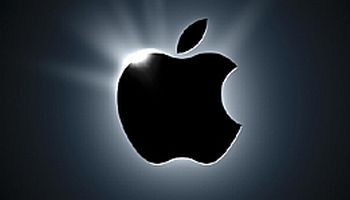

The debate surrounding Apple’s practice of recording iPhone location data has dealt a blow to the device maker’s reputation, according to a YouGov BrandIndex report that took a look at the brand perception of the iPhone in the wake of the controversy.
That reputation could take an even greater hit if a US congressman gets his way and convinces federal regulators to take a look into Apple’s practices.
Still worse, the pair added, was that “the file is unencrypted and unprotected, and it is on any machine you’ve synched with your iOS device. It can also be easily accessed on the device itself if it falls into the wrong hands. Anybody with access to this file knows where you’ve been over the last year, since iOS 4 was released.”
The fallout has included other lawmakers sending written demands to Apple CEO Steve Jobs for greater clarification on Apple’s practices. It also has rolled out to Google and Microsoft, which also noted that their mobile operating systems record location data from mobile devices.
Apple responded on April 27 in a statement on its Website, largely blaming a software bug in its iOS operating system for storing the incredible amount of data and insisting that Apple is not tracking its users. The company also said it was planning a software fix to ensure that such data is not kept for long periods of time.
“Users are confused,” Apple said in the statement, taking some of the blame for failing to provide “enough education about these issues to date”.
What Apple is actually doing, the statement continued, is “maintaining a database of WiFi hotspots and cell towers around your current location”, in order to reduce the time it takes an iPhone to “accurately calculate its location when requested”.
While Apple says it cannot pinpoint anyone’s location, Warden and Allan created a visual presentation of a portion of data found on Warden’s phone; while far from street-level data, it is a clear illustration of what the pair say was a trip from Washington DC to New York City.
US politician Jay Inslee called the revolution a “disturbing discovery” in a letter to the Federal Trade Commission and asked the agency to investigate the matter and “determine the size and scope” of this “disturbing discovery“.
In an April 22 letter to Federal Trade Commission Chairman Jon Leibowitz, Inslee criticised Apple’s practice, suggesting iPhone users were essentially kept in the dark about the data recording and pointing out that Apple’s only apparent disclosure of this practice was buried in a lengthy terms and conditions agreement.
“The fact that no iPhone user was aware of this activity until two tech-savvy researchers stumbled upon it illustrates the lack of adequate disclosure,” Inslee wrote. He continued, “In total, following the purchase of an iPhone, a citizen’s movements were tracked, recorded, stored permanently and left unprotected on numerous devices – all without their informed consent. Mobile users deserve better.”
And indeed, mobile users were not pleased to hear the news.
“Since two technology programmers revealed last week that Apple’s iPhone contains hidden software that regularly records the owner’s location, the iPhone brand’s perception has plummeted from a buzz score of 31.7 on April 21 to a 2011 low of 7.4 for adults 18+,” YouGov’s BrandIndex reported April 27. The company tracks brand feedback on a range of 100 to -100, with 0 representing an equal amount of positive and negative feedback. “To put the iPhone’s fall in greater perspective,” the report continued, “the brand’s buzz score peak so far this year was 40.2 in mid-February. Its current score, while still positive, is the lowest it has been all year.”
Inslee, in his letter, pressed the FTC to gain a full understanding of the purpose behind Apple’s data-collection practices, as well as “the length and extent of this data collection, the method and extend of customer notification, the tools provided to users to prevent this activity and the degree of data protection.”
Following the backlash Apple has faced regarding the matter, Microsoft posted information to its site about how and when mobile phones running the Windows Phone OS collect location information. Google has similarly tried to be forthcoming about such information.
Former board member and respected chip industry veteran Lip-Bu Tan appointed to lead troubled US…
MPs demand secret High Court hearing be held in public, after government had ordered a…
Consequences. As Musk and DOGE continues slash-and burn at federal agencies, FTC asks for trial…
Report from CMA's independent inquiry group concludes mobile browser markets not working well, but cloud…
Elon Musk turns White House driveway into Tesla showroom to allow Donald Trump to choose…
TSMC reportedly pitches a joint venture with big name chip players for Intel's chip-making Foundry…